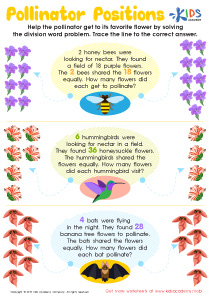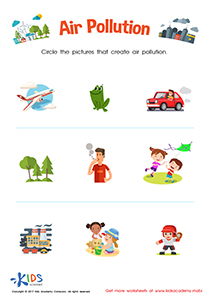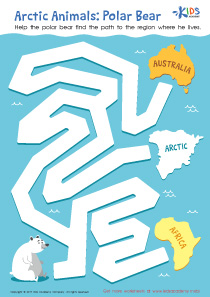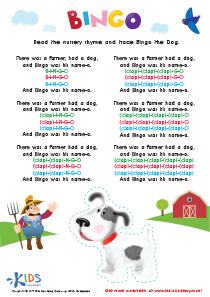Easy Shapes Quizzes for Ages 3-4
4 results
4 filtered results
Clear all filters4 filtered results
-
From - To
Introducing our "Easy Shapes for Ages 3-4" interactive assessment quizzes, specially designed to engage young minds in the fascinating world of shapes! Tailored for toddlers, these quizzes offer a fun and educational experience, helping children recognize and name basic shapes through a series of intuitive questions and colorful visuals. As kids progress, they receive immediate feedback, encouraging their learning journey. Perfect for preschoolers, our quizzes not only check their knowledge but also enhance their cognitive development and visual recognition skills. Dive into our user-friendly platform where learning shapes becomes an exciting adventure for your little ones!
In today's rapidly evolving educational landscape, the importance of integrating fun and interactive methods into early childhood education cannot be overstated. One such innovative approach is the use of Easy Shapes quizzes designed specifically for children aged 3-4. These quizzes, crafted with the developmental needs of preschoolers in mind, stand as a testament to how blending learning with play can yield remarkable results in the foundational understanding of shapes—an essential building block in the realm of early mathematics and spatial awareness.
Understanding shapes forms the cornerstone of early geometry. It not only aids in recognizing and naming basic shapes but also in understanding the world around them. Everything from the sun to the wheels on a bus involves a shape, and the Easy Shapes for Ages 3-4 quizzes make this learning both accessible and engaging. These quizzes introduce children to basic shapes such as circles, squares, triangles, and rectangles in an interactive, colorful, and fun way. The beauty of these quizzes lies in their ability to adapt to the individual learning pace of each child, ensuring that no child is left behind.
The Easy Shapes quizzes are not just about memorization. They are thoughtfully designed to foster critical thinking and problem-solving skills from a tender age. Through interactive questions that ask children to identify shapes in different contexts and orientations, children learn to apply their knowledge in various scenarios, enhancing their cognitive flexibility. This early development of spatial reasoning skills is crucial, as research suggests it is strongly linked to achievements in science, technology, engineering, and mathematics (STEM) fields later in life.
Moreover, the inclusion of Easy Shapes for Ages 3-4 quizzes in the curriculum is a boon for educators and parents alike. For educators, these quizzes serve as a valuable tool in assessing the understanding and progress of each child in a non-intimidating manner. The immediate feedback provided helps in identifying areas where a child might need more support or practice, allowing for a tailored learning experience that caters to individual needs.
Parents, on the other hand, find the quizzes a perfect way to be involved in their child's early education. These quizzes can be accessed from the comfort of home, providing a wonderful opportunity for valuable bonding time while learning. The ease of use and the interactive nature of the quizzes mean that children are eager to engage with the material, turning what could be a tedious learning task into an enjoyable and productive activity.
In conclusion, the Easy Shapes for Ages 3-4 quizzes represent a leap forward in early childhood education. By blending learning with play, they not only make the concept of shapes accessible to preschoolers but also lay a strong foundation for future learning. The quizzes' focus on interaction, critical thinking, and personalized learning pace makes them an invaluable resource for sparking an early interest in mathematics and geometry. As we look towards the future of education, the role of innovative tools like these quizzes in fostering a love for learning from a young age cannot be underestimated.












